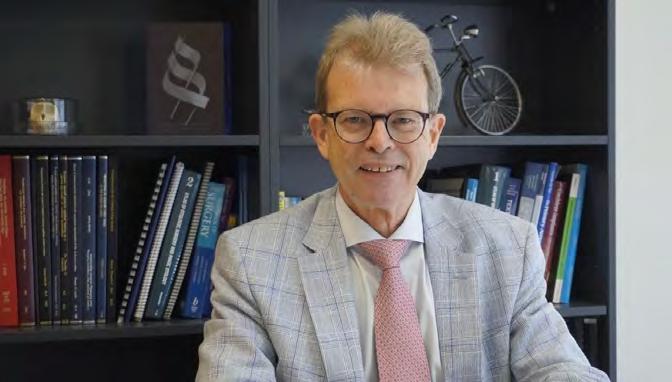
3 minute read
Indigenous ear clinic celebrates anniversary
The clinic has provided more than 1500 instances of care in its 10 years of existence
A clinic that has helped improve the hearing of hundreds of Indigenous Victorians celebrated its 10-year anniversary in April. The Healthy Ears Clinic was established in partnership between the Victorian Aboriginal Health Service (VAHS) and the Royal Victorian Eye and Ear Hospital, with the support of Rural Workforce Agency Victoria in 2012.
Advertisement
Since then, more than 220 surgeries have been carried out to improve the hearing of young Indigenous patients. Ear, Nose and Throat surgeon Professor Stephen O’Leary has been operating at the clinic since its inception and says the clinic addresses a significant health concern within the Indigenous community. “Ear disease is a big problem and one that starts before children are even speaking. By the time they turn one, about 90 per cent of Indigenous children have some form of ear disease. “It might be a hole in the eardrum or fluid behind the eardrum; these problems can have a long-term effect on hearing, which impacts on education and socialisation,” Professor O’Leary said. According to the Australia’s Health 2018: In Brief report, Indigenous children are 2.9 times as likely as non-Indigenous children to have long-term ear or hearing problems. The partnership between VAHS and the Royal Victorian Eye and Ear Hospital was established after health professionals from the hospital spent time in Alice Springs treating ear problems. The organisations recognised there were similar hearing needs among local Indigenous children in Victoria.


“It became clear that there was a problem in our backyard—not just in remote areas—and working in Alice Springs had given us the confidence that we could help.” Since then, the clinic has provided more than 1500 instances of care—offering audiology testing and ear, nose and throat consultations.
The organisations involved in establishing and running the clinic attended a celebration to mark its 10-year anniversary, complete with cupcakes highlighting the groups that had contributed to its success. Professor O’Leary attributes the consistency and longevity of the service to the partnership between organisations and to the support of their respective Boards and administrations. “Usually this kind of initiative is run on the goodwill of individuals, but this venture had the full support of everyone from the hospital board down, and that made it easier to establish a robust model, and gain and maintain, funding.” Professor O’Leary, a researcher and practicing surgeon, first developed an interest in Indigenous health when he spent three months on Thursday Island, in the Torres Strait Islands, as a final year medical student.
Image: far left - The 10-year anniversary, photographed by RVEEH photographer Anthony Bragaglia, and cupcakes by Victoria Edwards
Mabo. He sat on the porch of what might have been a member of the Mabo family and learnt about Indigenous land rights. The experience opened his eyes to Indigenous issues and set him on track to build lasting and trusting relationships with Indigenous communities. These relationships have been vital to the success of the clinic, ensuring the right care was provided in a culturally sensitive way. Professor O’Leary’s involvement in the Healthy Ears Clinic has been a professionally and personally rewarding one. “It’s meant that I have a sense of connection to Indigenous Australians that I never would have experienced otherwise,” he said. “Now I feel like I have a sense of understanding built through engagement with the community.” He also highlights the contribution made by Australia’s first Indigenous surgeon, Ear, Nose and Throat surgeon, Professor Kelvin Kong in providing valuable guidance to the clinic.
“As a non-Indigenous person, it is very easy to provide what you think is best, but you need an Indigenous perspective.” Professor Kong says the clinic’s success is a testament to the partnership between the organisations and individuals involved. “It is one of the most successful outreach clinics we have in Australia,” he said. In the future, Professor O’Leary, who sits on the RACS Aboriginal and Torres Strait Islander Advisory Group, MINA, and the RACS Indigenous Health Committee, would like to see similar initiatives in which Indigenous health organisations partner with hospitals developed across specialties.










